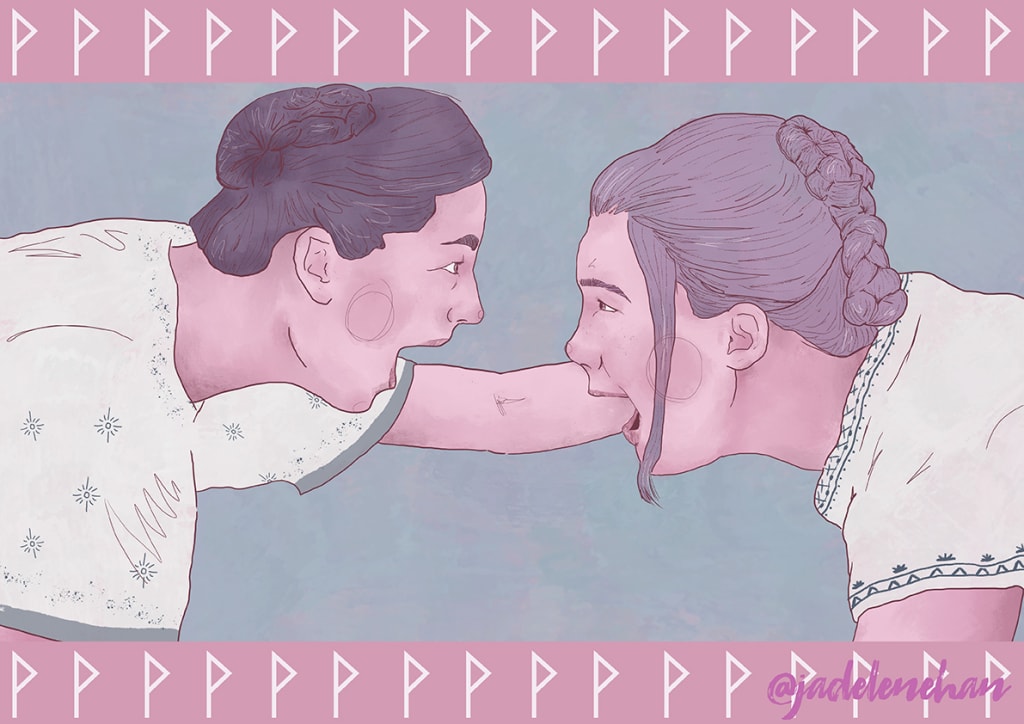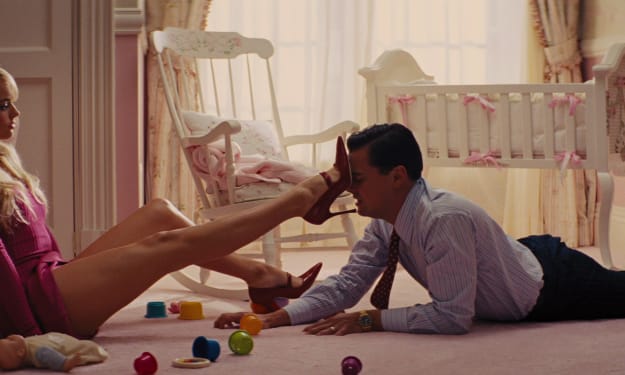'Midsommar': A Girl's Best Friend
My thoughts on 'Midsommar's' themes of empathy and female connections.

Have you ever watched a film that makes you think about it for weeks afterwards? Midsommar (directed by Ari Aster) has been that film for me. I have only seen it twice in the cinema, but it has been consuming my mind, I haven’t had a film touch me in that way in a couple of years.
I suppose I’m writing this just to put down some thoughts I have about it. And obviously, spoilers ahead.
I think one of the major reasons I loved it is because it surprised me in the themes in handled. I went in expecting a weird, cult horror with some disturbing images. What I didn’t expect was that it would essentially be a film about trauma and cutting ties with toxic relationships in your life. I’ve joked as well that it felt like an empowering “chick flick”.
The protagonist, Dani, is played by Florence Pugh and we see the experience through her eyes. One thing we notice is that Dani has more understanding towards the Swedish villagers than her boyfriend, Christian (Jack Reynor) their friends and the other couple. This allows her and them to gain mutual respect while the rest of them disrespect the villagers in some way (not being open minded, pissing on the ashes of their deceased, using them for academic purposes, etc). Dani’s old support system get unhappy endings while her new support system welcomes her with open arms. These are some of the ways the film explores themes of family, trauma and empathy.
After the violent family trauma Dani experiences, we see the kind of support system she has in America. We have her neglectful boyfriend and his friends (one of which voices his dislike towards her a lot) and a girl we hear on the phone a couple of times. We see very clearly on screen what Christian isn’t giving her and we see his friends acting quite cold towards her. But I did wonder what this woman wasn’t giving her that led to her feeling so isolated in her country.
Another question I had about the film was, why did Ari Aster decide to write the protagonist as a woman? Was it so he could explore the themes of empathy which traditionally seen as a feminine trait? I just thought it was intentional as he has said in interviews that this is a break-up film and you would think you would make the protagonist the same gender as you in such a personal project.
Even though it shows Dani getting a new family, it specifically focuses on her building relationships with women. Starting with Dani’s mental health, I noticed that we only see two instances where the scenes are set at pitch black night. During the times that they are in America, which is obviously where Dani is feeling at her lowest and feeling very raw. One scene while they are in Sweden isn’t even real, it is when she dreams that Christian, Josh and Mark get in a car and abandon her. So, I think these night scenes are showing her at her most vulnerable. The rest of the film is shot in bright day light and we watch the spotlight on Dani as she processes and begins to heal from her trauma.
Another thing I noticed when Dani had panic attacks or is sobbing, she would put her hand over her mouth, as if she is suppressing her emotions. She doesn’t allow herself to process anything and just shoves everything down. She doesn’t use her voice against Christian, or if she does, she immediately backtracks. I think when we truly see her expressing healthy emotion for the first time is the climax of the film, when she sees Christian having sex with Maja (the use of the word ‘climax’ is not a pun, I swear). Dani begins to have a breakdown when she sees this and the female villagers grab her and take her away from the situation. For the first time, Dani doesn’t hold her hands over her mouth, she just lets out visceral screams and sobs with the other girls. (Florence Pugh does an amazing job in this scene!)
As I said earlier, I’ve joked about it being the ultimate chick flick. I think this is because of the strong connection with the women in this film. Even though all the villagers have a strong compassion and empathic link, we see the women have more of an emotional bond. We see mixed sex empathic reactions a few times in the film but it’s always to do with something more physical. The elder man jumping off the cliff and breaking his leg, they scream as if their legs are broken too. The other scene is the ending with the burning temple and the villagers screaming out as if they are burning. While the whole village do have that empathic link, it’s the women we see a closer bond with. Sharing Dani’s pain as they first try to hush her and then start sobbing and crying ferally with her. Also, the part physical and part emotional empathy with Maya when she was the ritualistic sex with Christian. A group of women of all ages and sizes crowd them in a semi-circle and they feel what Maya feels, they experience her first-time having sex and being impregnated. Yeah, we all laughed in the cinema over it but if you take a step back, you can see how this scene could be a beautiful bonding experience. Notice again, this isn’t a mixed sex experience.
This film made me feel extremely cathartic, I felt what Dani felt. I had to hold back tears when she was being emotionally destroyed and I felt as cleansed as her face showed us when Christian was being burned alive. She faced her traumatic demons through the respect and empathy she gained through her new family (also with the help of psychedelics opening her mind and making her susceptible). I feel like anyone who has experienced trauma would find this film cathartic and I think that’s why I responded so strongly to it.
This isn’t necessarily laid out in the best way, but this film has been on my mind for weeks now and I had to word vomit it all out.
About the Creator
Jade Lenehan
I like to write think pieces and just my opinions sometimes. Need a place to put it. I like wine, art, films, literature and cats. My art instagram is: @jadelenehan






Comments
There are no comments for this story
Be the first to respond and start the conversation.